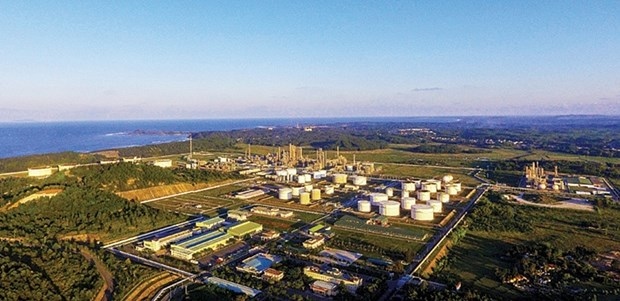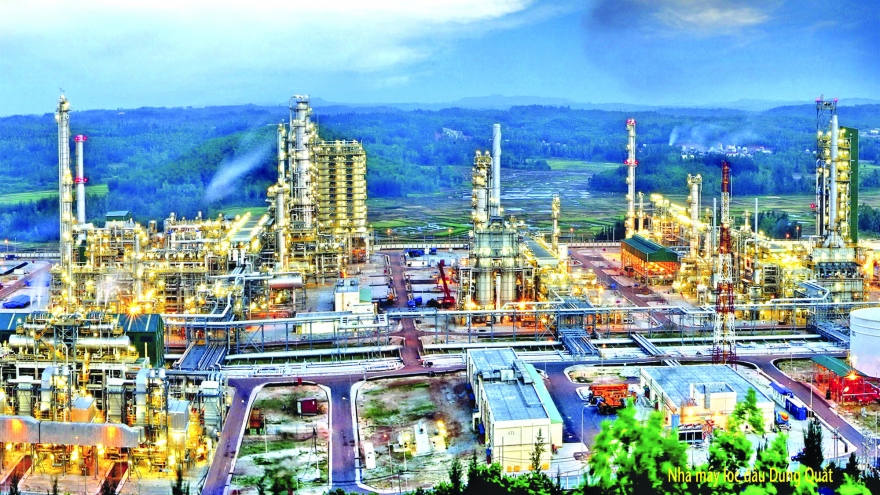Dung Quat Oil Refinery – an investment magnet in Quang Ngai
Since the Dung Quat Oil refinery – the first in Vietnam - was put into operation in 2009, it has served as a booster for the Dung Quat Economic Zone and the central province of Quang Ngai as a whole to lure both domestic and foreign investments.

Only VND3.7 trillion (US$150.6 million) was injected to Quang Ngai province during 1996-2004; however, the figures increased to some VND6 trillion in 2005 and VND24.5 trillion in 2008 – the time when Dung Quat Oil Refinery was under construction.
Although the global economic crisis in 2008 forced investors to pull their funds out of Quang Ngai, investments in the locality bounced back from 2013, reaching its peak of some VND43 trillion during 2018-2019 or a quarter of the total capital funneled into the central region.
Non-state capital began to flood Quang Ngai province after the oil refinery became operational, with VND52.7 trillion registered during 2012-2013 as compared to VND11.6 trillion recorded during 2007-2008.
As a locomotive for Quang Ngai’s economic development, the Dung Quat Economic Zone has breathed a fresh air into the province’ FDI attraction. Particularly, when the construction of the Dung Quat Oil Refinery began at the zone in 2005, the province saw an increase in the number of FDI projects.

During the 2000-2005 period, Quang Ngai lured only one FDI project with newly-registered capital of US$2.2 million each year. The FDI inflow to Quang Ngai was raised to more than US$3 billion in four large projects in 2008.
With the oil refinery, Quang Ngai has become attractive to large enterprises such as Doosan, Guang Lian Steel, Sembcrop, J-Power, Kicox, Kizuna, and Sumida.
Over the past years, the oil refinery has made great contributions to the local socio-economic development. Quang Ngai’s per capita income in 2022 reached VND97.67 million, ranking second among the 14 central localities, and second among the five localities in the central key economic zone.
The facility will be expanded to raise its capacity to 171,000 barrels per day, up from 148,000, with a total investment of US$1.26 billion.
Under a decision by Deputy Prime Minister Tran Hong Ha, the operator of the refinery - Binh Son Refining and Petrochemical Joint Stock Company (BSR) - will provide US$503 million from its equity and the rest will come from loans.
The company, a subsidiary of state-owned PetroVietnam, will set up and put into operation additional technology workshops for the processing of crude oil with higher sulfur content in accordance with the “Euro 5 standard”.
The 10.6ha refinery will be expanded by 41ha, and is scheduled to be finished in the first quarter of 2028.
The expansion was approved in 2014 but postponed by problems related to the design, appraisal, approval process and capital mobilisation.
Petrovietnam and the company had sought permission to adjust the scale, technology and progress of the expansion. The capacity target was adjusted down to 171,000 barrels a day from 192,000, and investment lowered by US$540 million to US$1.26 billion.


